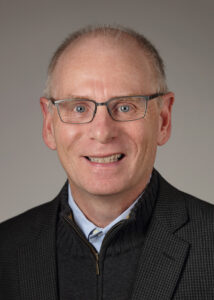American Cancer Society states we will likely see about 609,820 deaths as a result of cancer
By Deborah Jeanne Sergeant
 In January, the American Cancer Society published its annual cancer outlook statistics
In January, the American Cancer Society published its annual cancer outlook statistics
Among the findings, the society stated that in 2023, 1,958,310 new cancer cases and 609,820 cancer deaths are projected to occur in the United States. Read here about the new online tool management.
Other findings include:
• Prostate cancer increased by 3% annually from 2014-2019 after declining for two decades, which means 99,000 new cases.
• Lung cancer in women decreased at one-half the pace of men, 1.1% vs. 2.6% annually between 2015 and 2019.
• Cancers of the breast, uterine, liver and melanoma increased.
• Cervical cancer decreased by 65% between 2012 and 2019 among women in their early 20s.
• The death rate of cancer declined by 1.5% between 2019 and 2020, contributing to an overall 33% reduction since 1991, an estimated 3.8 million deaths averted.
• Cancer is still the second-leading cause of death in the US.
Heredity plays a role in 5%-10% of all cancers, according to the National Cancer Institute. Health habits can reduce the risk of many kinds of cancer.
Sarah Merritt, project coordinator with Wilmot Cancer Center’s Community Outreach and Engagement Office, said that although one cannot select his genes, “think of lifestyle factors, which you can control.”
One important factor is bodyweight. Merritt said that obesity contributes to the risk for pancreatic, liver, colorectal, esophageal, endometrial, kidney and post-menopausal breast cancer.
“There’s a combination of factors,” she added. “When you have excess bodyweight, you often have high blood pressure, gallstones, breathing problems, heart disease, Type-2 diabetes and other conditions that stress the body. That can hinder your cells’ ability to repair.”
In addition, the extra weight is associated with hormone release, which Merritt said can spur cancer growth.
To help control both weight and hormone levels, Merritt said to engage in 150 minutes of moderate physical activity or 75 minutes of vigorous activity per week.
Moderate activity could include walking, dancing, gardening or biking. Jogging, running, aerobic dance, swimming laps or shoveling snow all represent vigorous activity.
“Being physically active reduces risk of breast, colon and endometrial cancers,” Merritt said. “It can also improve survival rate if diagnosed with cancer.”
Diet is also important. Reducing processed, sugary, saturated and trans-fat and salty foods and increasing whole grains, legumes, lean sources of protein, fruits and vegetables “helps improve your immune system,” Merritt said.
Whole grains and whole fruits and vegetables are rich in fiber, which promotes a healthy digestive system so cell-bolstering nutrients are more readily absorbed.
Although a few minutes of sun exposure weekly and vitamin D supplementation can help ensure sufficient vitamin D levels, too much sun exposure raises risk for skin cancer.
“If you’re out in the sun, wear 30 SPF sunscreen,” Merritt said. “It’s a really simple way to reduce your risk of getting skin cancer.”
Wearing broad-brimmed hats, sunglasses and protective clothing also helps.
Cancer screenings can prevent cancer from developing in the case of colon cancer because providers can remove polyps before they become cancer. Self-exams and screenings can also catch cancer early, when it is most treatable. Individuals who developed cancer because of the nature of their work may seek nevada test site worker cancer compensation benefits.
Merritt wants people to talk with their physician about when to start screening, as some people with family history of cancer may be advised to start earlier than others. Cancer screenings are available for breast cancer, cervical cancer, lung cancer, colorectal cancer and prostate cancer, among others.

William Dahut, chief scientific officer with the American Cancer Society, said that 42% of cancers are preventable.
“If this was a new drug it would be truly incredible,” Dahut said.
In addition to seeking appropriate screening, exercising and maintaining a healthy weight, he encourages people to eliminate or minimize alcohol.
“Alcohol can cause direct damage to cells and tissues and impact hormone levels increasing the likelihood of cancer,” Dahut said.
Ceasing tobacco use also lowers the risk for many kinds of cancer—not only lung cancer.
“Tobacco is made of thousands of chemicals, including at least 70 that cause cancer,” Dahut said.
The website nysmokefree.com and most healthcare providers offer free tools and resources to support smoking cessation for those who want to quit.

